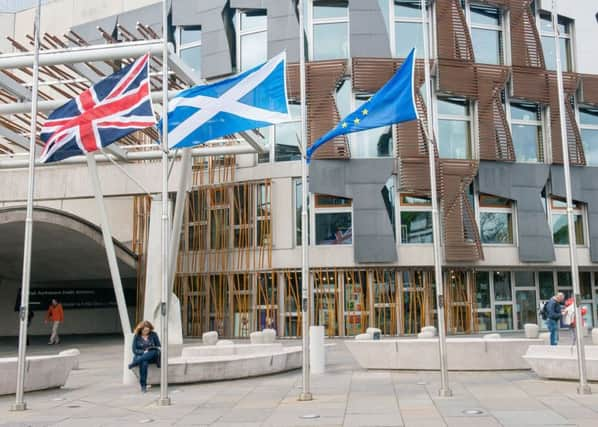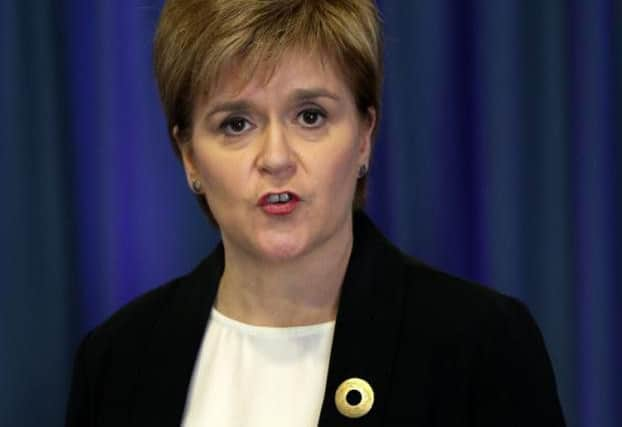Report warns Scots public spending faces 20% cut


And many "non-protected" areas like housing, transport and social work could drop by 9-14% over the course of this Parliament alone as the ongoing impact of austerity continues to bite, according to the Fraser of Allander Institute.
Without change Scotland's annual £30 billion devolved budget will no longer be sustainable, the body says in a new report.
Advertisement
Hide AdAdvertisement
Hide AdThe findings are likely to increase calls for Nicola Sturgeon to raise taxes to offset austerity after she told MSPs earlier this month that she is now open to this in next year's budget and has commissioned research.


Today's report entitled ‘Scotland’s Budget: 2017’ warns that ongoing economic uncertainty, fresh Westminster cuts and and major spending commitments in areas like childcare, will mean many other public services will continue to be squeezed.
Professor Graeme Roy, Director of the FAI, said: “The Scottish devolved budget faces considerable spending pressures in the years to come.
“In particular, rising health costs and an ageing population mean that commitments to health spending are continuing to squeeze funds for other public services.
“Changes in the balance of and scale of public spending; how public services are delivered and prioritised; and the way in which devolved revenues are raised, are all likely to be required. "Continuing as before is not an option if Scotland’s devolved budget is to be sustainable in the long term.”


Analysis by the FAI reveals that spending on public services other than health is expected to be almost 20% lower in 2020/21 than it was a decade earlier.
The SNP Government is committed to raising funds for the health service by £500 million more than inflation by the end of this parliament, doubling free childcare provision, free university tuition, protecting the police budget. Ministers have also pledged to maintaining free personal and nursing care and invest an additional £750 million in a school attainment fund.
But these will mean other parts of the budget will face cuts. The commitments to the NHS, policing, childcare and educational attainment could mean that ‘non-protected’ areas face real term cuts of between 9% to 14% over the current parliamentary term 2016/17 to 2020/21.
Advertisement
Hide AdAdvertisement
Hide AdThe Scottish Parliament last week voted in favour of income tax hikes to offset the impact of austerity. Ms Sturgeon recently called for opposition parties to contribute to research she has commissioned into this, as the First Minister appears likely to raise income tax next year.
But the Institute of Chartered Accountants in Scotland (ICAS) warns in a chapter in today's report that there is still only limited understanding of Scotland’s new tax powers.
Justine Riccomini, Head of Taxation at the Institute of Chartered Accountants (ICAS), said: “As the Scottish Government discusses the options to use its new income tax powers, it needs to factor in the interaction of income tax with other UK taxes as there are administrative and practical constraints to be considered when setting the rates and bands.
“These potential limitations are discussed in the report, which calls for clarity on devolved taxes and proposes that the Scottish government implement a five-year roadmap to set out the objectives of Scottish tax policy.”